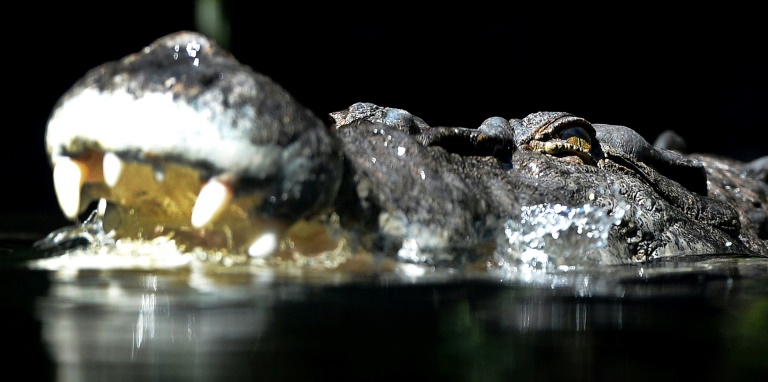A 60-year-old Australian man escaped the jaws of a large crocodile by stabbing it repeatedly in the head with his pocket knife as it dragged him into a river, local authorities said Wednesday.
After surviving the terrifying attack at a remote riverbank in Australia’s far-northern Cape York Peninsula, the injured man was “lucky to be alive”, according to wildlife officers.
“There was a struggle and he fortunately escaped the grip of a four to four-and-a-half-metre crocodile. The odds of doing that are about zero,” said Matt Brien of the Queensland state environment department.
The man had gone fishing on his property last week near Hope Vale, about five hours’ drive from Cairns, and shooed away a bull from the riverbank so he could take over the spot.
Then, the crocodile struck.
“He described seeing the crocodile seconds before it lunged at him, knocking him over as he was about to cast his fishing rod,” the department said in a statement.
He grabbed onto the branch of a mangrove tree in a desperate attempt to stay out of the river as the crocodile’s jaws wrapped around his boots. But he quickly lost the tug-of-war and was pulled in.
“The man said that as he entered the water, he managed to retrieve his knife from his belt and stabbed the crocodile in its head until it let him go.”
The man then scrambled up the bank and was driven to Cooktown Hospital for treatment. He was later flown to Cairns Hospital, where he was still recovering a week later.
A health department spokeswoman said he was in a “stable” condition.
Wildlife officers who interviewed the man Tuesday confirmed that his injuries were consistent with a crocodile attack.
“It appears that the crocodile was targeting the bull or the cow at the time, and he’s just ended up in the wrong place at the wrong time,” Brien told reporters.
“It’s an absolutely harrowing experience. He won’t forget that in a long time.”
Saltwater crocodile numbers have exploded in Australia’s “croc country” since they were declared a protected species in 1971, with attacks increasing in recent years.
The “salties”, which can grow up to seven metres long and weigh more than a tonne, are a common feature of the vast continent’s tropical north.
Fatalities remain relatively rare, with locals and visitors warned to keep their distance from inhabited waterways.









